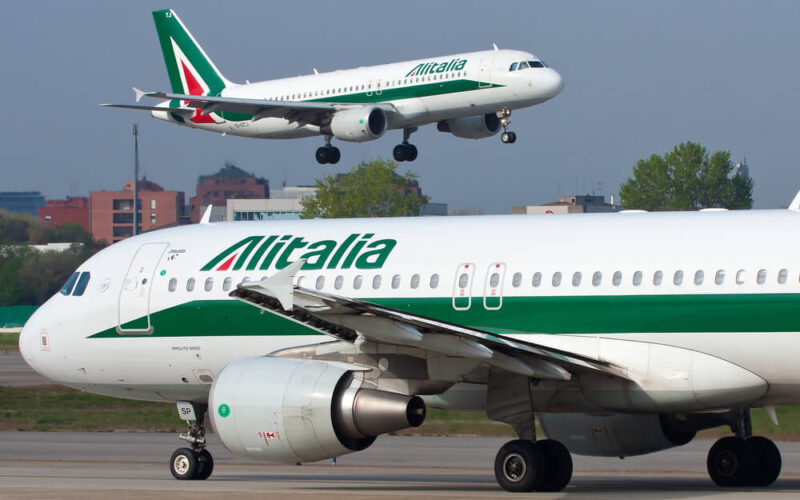Alitalia, the Rome-Fiumicino, Italy (FCO) based airline, has been operating under an “extraordinary administration” since May 2017. At the time, the Italian government seemingly gave up on the carrier as it accumulated a total of $3.3 billion (€3 billion) of debt. While the flag carrier was declared insolvent and a buyer was sought, Alitalia continued to operate.
Rumors spread wide and far of a potential buyer: from Air France-KLM consortium dipping its toes into Italian waters, Delta Air Lines securing a stake in its fellow SkyTeam alliance member, to Lufthansa (LHAB) (LHA) , a rival Star Alliance leader, asking for restructuring the carrier if it were to buy a stake in Alitalia. Even low-cost carriers, namely easyJet and Ryanair, expressed interest in Alitalia: however, both dropped their plans to invest in the airline in 2019 and 2017, respectively.
Alitalia’s financial situation
Rumors of its financial situation also spread. While the company does not publicly disclose its yearly financial results, Giuseppe Leogrande, the temporary administrator responsible for the handling of the carrier’s liquidation, told the Italian parliament that Alitalia is burning through $334 million (€300 million) of cash per year. With a financial position that is less than ideal already, burning through such an amount of resources might indicate that the carrier’s days are counted.
The only indication from Alitalia about its position is the fact that the company ended 2019 with an increase in passenger revenues (1.7%) and long-haul travelers (4.7%). In total, the airline saw 21.3 million passengers in 2019.
Even before coronavirus broke out, in December 2019, the Italian Industry Minister Stefano Patuanelli said that a $443 million (€400 million) governmental loan that the lawmakers signed off in the same month would be the last one. If no buyer appears anytime soon, the carrier would be simply shut down in mid-2020.
However, the industry heard the story over and over again. After all, the Italians injected over $1.4 billion (€1.3 billion), including the latest loan in December 2019, into Alitalia since the announcement of its insolvency in May 2017, just to keep it airborne.
But the recent coronavirus outbreak might finally be the culprit that would end the pain and misery of Alitalia.
Negative cash flow and investigations
While initially, COVID-19 was only seen as a localized threat in China, the virus started to quickly spread in Italy: with the first confirmed case in late-January 2020, the number of cases ballooned to over 2,000 people in the South European country. The Centers for Disease Control and Prevention (CDC), a U.S. based public health institution issued a travel warning to the public – to avoid all non-essential travel to Italy.
Meanwhile, on February 28, 2020, Alitalia indicated that it has reduced the amount flights on 38 international and domestic routes, with indications pointing out that the airline would cancel about 100 flights per day in March 2020. While the Rome-based carrier noted that load factors on some domestic routes dropped to as low as 38%, while previously it hovered around 66% (which is still an abysmal number),
Alitalia’s strategy to cancel flights is understandable, as there is no reason to accept bookings on flights that would not bring in cash flow to the company. However, even before the breakout, as Leogrande stated, the airline’s operations ran on engines that used cash, rather than kerosene, as fuel.
And the European Commission (EC) threw another spanner in the works. On February 28, 2020, the European lawmakers opened an in-depth investigation of whether the December 2019 government loan for Alitalia breached European Union (EU) State aid rules. The newest inquiry is the second looking into Italy’s help for its struggling flag carrier: the EC is in progress of investigating the $1 billion (€900 million) government loan, granted in 2017. While both investigations are still pending their final result and the Commission indicates that it is a “standard step, which provides Italy and other interested parties with an opportunity to provide their views,” a grim example could be the Estonian Air story.
After the Estonian government provided a bailout loan in 2013, two years later, the European Commission deemed the loan breached State aid rules. The Tallinn, Estonia-based airline was forced to pay back the $94 million (€85 million) loan to the local government. While instead of paying it back, the Estonians told the EC to shove it and declared bankruptcy, subsequently establishing a new airline called Nordica a day later, it could be an indication of how Alitalia’s book could also end.
Thus, a bad decision from the EC could signal the end of the road for the airline, which seemingly, was able to survive anything that one could throw at it.

